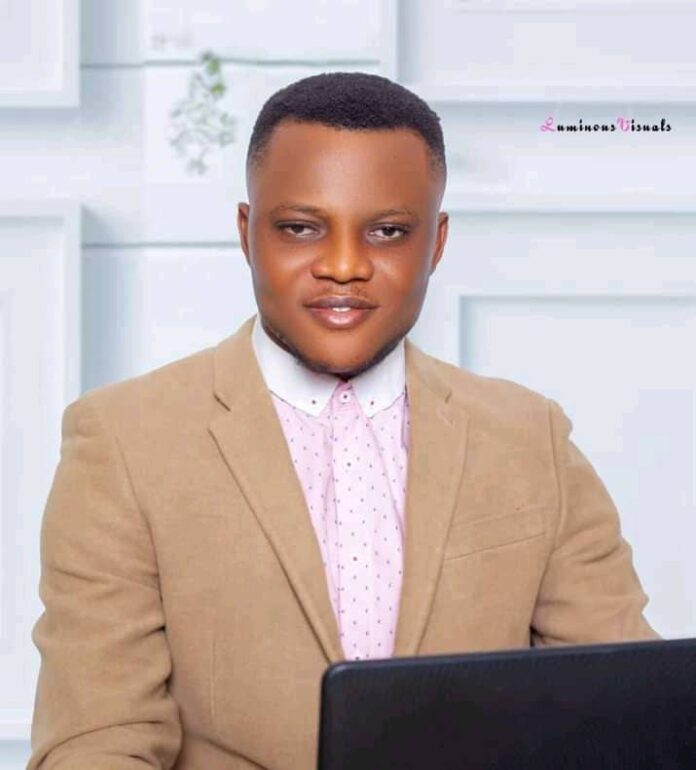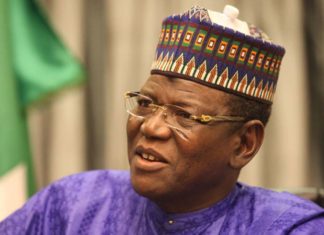Azeem Salako, the Spokesperson of the Forum of Awori Intelligentsia, and the Convener/Coordinator Awori for Ogun State Governor 2027, speaks on why the Aworis and not Yewas should produce the next governor of the State.
By Emma Ogbuehi
Four years to the next governorship election in Ogun State, the debate on which ethnic section of the State to produce the next governor has started in earnest, with the Awori group insisting that it is their turn to do so.
Azeem Salako, the Spokesperson of the Forum of Awori Intelligentsia, and the Convener/Coordinator Awori for Ogun State Governor 2027, speaks on why the Aworis and not Yewas should produce the next governor of the State.
Disagreement by Awori/Yewa over 2027 governorship
There is no quarrel, but a clarification between the two sub-Yoruba ethnic groups. Ogun State is divided into three senatorial districts, namely Ogun Central, dominated by the Egbas, and some will add Owus; Ogun East, dominated by the Ijebus and Remos; and Ogun West, dominated by the Aworis and Yewas. It is this clarification that the Aworis are a distinct ethnic community that only shared a political district with the Yewas that some politically driven Yewas considered an upset.
Agitation for the autonomy of Awori from Yewa premised on the 2027 election?
No. The agitation for the autonomy of Awori from Yewa has nothing to do with electoral politics or politics at all. I also need to underline that the agitation for Awori autonomy is not peculiar to Yewa alone but also to the Egbas, both of whom the Awori communities in Ogun State are sandwiched under their traditional councils. So the agitation concerns administrative restructuring, not a constitutional amendment.
Meanwhile, we have been clamoring for the Awori Traditional Council (ATC) many decades ago, which I documented in Chapter 8 of my book Fourth Treaties, which I launched at Trenchard Hall at the University of Ibadan in February 2022. That was even before the 2023 election. Mischief-makers, specifically those from the Yewa axis of the Ogun West, threatened by the autonomy of the Aworis, are the ones trying to cause unwarranted confusion, thereby linking our agitation to 2027 politics.
READ ALSO:
Awori agenda for 2027
By the special grace of God, the next governor of Ogun State will come from Awori land. And I do not doubt that the Yewas—I am talking about those who are committed to progressive thoughts, ideals, and ethos—would support the agenda in due course. This is because all the time, especially in 2011 and 2019, when candidates from Yewas contested the governorship, they always received the highest votes from the Aworis and Aworiland. It is instructive to add that the Yewas decided that they would not produce a governor. This is because the Yewas usually present multiple candidates who share the huge and substantial numbers of votes that usually lead to the election of candidates outside the Yewas.
In fact, in 2019, the candidate of the APM, Hon. Kunle Akinlade, needed only less than 20,000 of the over 110, 000 votes his kinsman, Nasiru Isiaka of the PDP polled, to defeat incumbent Governor Dapo Abiodun. It will interest you to know that the Ado/Odo-Ota local government, the ancestral homeland of the Aworis, gave the APM the highest votes in that election per local government. So, it is only logical for the Awori, who have shown themselves to be ready and politically disciplined, to produce the next candidate who will represent Ogun West in 2027 and win the election. That is our undisputed agenda.
Next governor coming from the Ota/Awori section?
We won’t want to dabble into where in Aworiland the choice of candidate should come from. In truth, the Ogun West senatorial district, which comprises the Aworis and Yewa ethnic groups, has not produced a governor since the creation of the state in 1979. But like I said earlier, the Yewa failed to break the jinx each time they were afforded the golden opportunity. And we won’t slip into one of the factors that contributed to their failure.
The contest is not built on any individual per se. In Awori land, we have the Ota, Igbesa, Ado, and Agbara, and in fact, we have Isheri Olofin and Agbada, which are partitioned under the Ogun Central Senatorial District. We have been working back home, and our elders, leaders, youths, and stakeholders are arranging the home so that once a candidate emerges either from Ota, Ado, Igbesa, or anywhere, such a person would be generally acceptable and backed.
Ota/Awori agitation for an independent traditional council
The Awori traditional council is in the common interest of all the Awori communities in Ogun State; hence, all the monarchs have a common purpose for its actualization, not only Ota. The fact that Awori is submerged in the Yewa and Egba traditional councils, despite our rich and distinct culture, huge industrial assets and economic contributions, strategic location, voting power, and demographic dividend, among others, has deprived us of access to their benefits because the state government and, in some cases, the federal government distribute values and work out governance through the four traditional councils: Remo, Egba, Ijebu, and Yewa. The recently concluded budget review in Ogun State was organized at the headquarters of the four councils I mentioned above, so one imagines what happens to the Awori when, in fact, we control greater human and material resources in the state.
Yewa people claiming ownership of the Ogun West Senatorial District and Ota and Awori agenda to change the narrative
They are joking. But let me continue to say that the majority of Yewas are peaceful and orderly, and they recognize why the Yewas and Aworis must enjoy mutual benefits in Ogun West. The minority who are causing the rife and innuendos are those who want to rewrite history for political gains. Thus, Aworis and Yewas own Ogun West. These political merchants are only being mischievous over a part of the Aworis in Ogun West, with Ado, Igbesa, and Agbara sharing the same traditional council with them.
Unfortunately for them, they lack such power over these Awori lands. Olu Ilaro, who happens to be the president of the Yewa traditional council, knows that he lacks the power to claim the entire Ogun West. He can only claim the four local governments in Yewa: Yewa South, Yewa North, Ipokia, and Imeko Afon, but not the Ado/Odo-Ota local government.
They have made a series of attempts that have faced stiff resistance. That Ado and Igbesa who share the same traditional council with them neither arrogate claim over the land of the Aworis nor extinguish the identity of the Aworis. Recently, a socio-political organization by the name of Forum of Awori Intelligentsia, of which I am its spokesperson, demanded the senate president, Godswill Akpabio, apologize over a statement he made during his visit to Ilaro, where he was chairman at the Yewa cultural festival and made a similar statement.
Let us even ask, how does one exert influence or power over land that you have no control over? In these areas that share the same council with the Yewas, the Aworis, under the law, remain the only ones to nominate and crown their monarchs. Section 42(a) of the Obas Law 2023, as amended, gives the power to appoint a chief only to the traditional ruler with the prescribed authority, which in this case, the authority of Olu of Ilaro, does not extend to these Awori communities.
Section 35 of the same law lists the functions of the traditional council, which are basically and solely administrative functions. I am a trained political scientist, and I teach public administration too. So one of the interesting debates in public administration is the dichotomy between politics and administration, and the simple means to differentiate both is that one (politics) is the end and the other (administration) is used as a means to achieve the end. Therefore, the traditional council is merely operating as machinery under a delegated power on behalf of the governor who created it.
What are we doing to change the narratives? We remain committed to demanding our traditional council from the Governor, to whom the law has given the sole authority to create the Awori Traditional Council, because Section 33(1) of Part 4 of the same Ogun State Obas Law, as amended in 2023, gave the sole prerogative to declare the establishment of a traditional council to the Governor of the State. It reads: “The Governor may, by order, establish, for such traditional area as the case may require, a traditional council”. We are convinced that the Governor, Prince Dapo Abiodun, is a man of justice, equity, and fairness, and he will definitely establish the Awori Traditional Council before the end of his tenure. Although the traditional council would not mean that we would not continue to sustain our political relations, it certainly will strengthen them.
Ota, Agbara, and Awori as industrial hubs and feeling of marginalisation
Simply because the terms of income the government generates from these hubs do not correspond with what is being allocated as values. This part of the state has the highest level of underdevelopment in the areas of roads, infrastructure, and other government deliverables. The Ota, Agbara, and Igbesa industrial settlements have not been used to develop our communities.
Sustain an Awori, distinct from Yewa?
We have started the campaign already. We now have the Ogun State Awori Obas Forum. We have also established the Forum of Awori intelligentsia, and recently, the students across all the higher institutions in Nigeria who are indigenous to Awori have formed the Federation of Awori Students Union (FASU). We have equally started the Awori Cultural Festival. And the Awori for Ogun Governor 2027 is also articulating its agenda. Many more initiatives are springing up, which indicate that the Aworis are ready and prepared not only to win their autonomy from the Yewas and Egbas but to sustain it for the progress of the Awori community and Ogun State generally.











